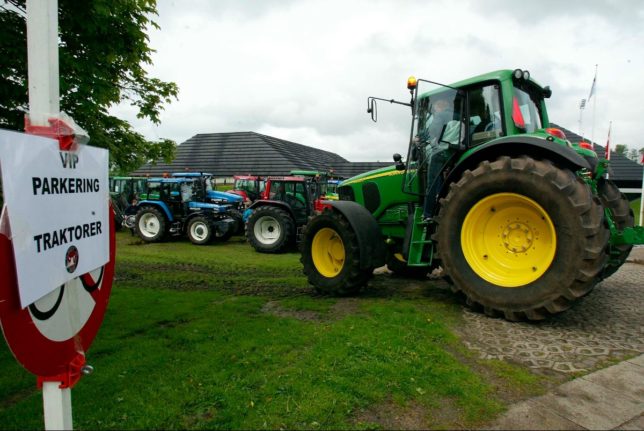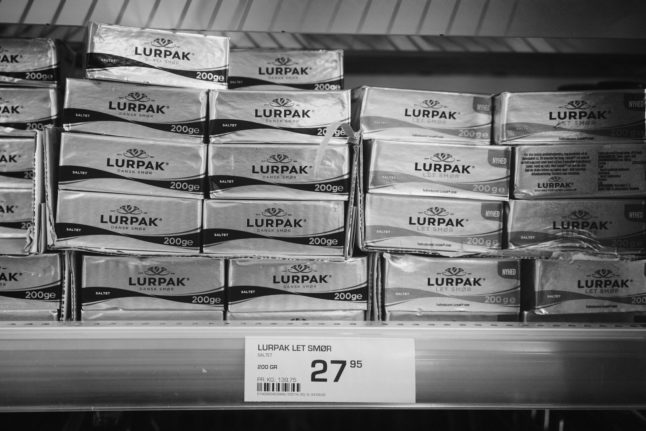It may strictly be a separate city but few places are as deeply Copenhagen as Frederiksberg, the leafy independent municipality in the centre of the Danish capital, and the people The Local spoke there to all had their views about people from Jutland, even if some of them had Jutlandish roots themselves.
Jeppe, 19, one of a group of young men getting on the metro, said that many Copenhageners thought of Jutlanders as being beer guzzlers who were tight with money.
“I think a lot of people see them as kind of greedy, that they don’t necessarily want to spend much money,” he said. “The other thing is they drink a lot of beer, not just at parties but in the workplace.
“I think they’re more traditional, as well,” added his friend Bertrand.
Sanna, a Copenhagener with a Swedish-Finnish background, agreed that one stereotype about Jutlanders was that they were “cheap”, but added that paradoxically, they were also in her experience more ostentatious.
“They like more branded clothes, and they spend money on bigger cars,” she said. “Copenhageners don’t show off their money in the same way that people from Jutland do if they have it. It’s much more bohemian here. Even if you are in a higher position, you can still be super-bohemian and go to a secondhand store.”
Ann, a young woman with a septum nose piercing whose family come from Jutland, said that in her experience people on the peninsular were more conservative.
“They are very traditional and most of them only care about their own backyard. They don’t really care about cultural opinions like racism, sexuality, the environment,” she said. Jutlanders, on the other hand, she said, tended to dismiss Copenhageners as “woke”.
Lila, 49, who moved from Jutland to Copenhagen as a young woman, said that Jutlanders tended to be a lot more narrow-minded.
“I think it’s easier to come from Jutland to Copenhagen than the other way around. People in Jutland are more judgemental…maybe they’re insecure, I don’t know.”
Silke, 19, who was walking past the Royal Danish Academy of Music, said that she believed people from Jutland to be unusually voracious meat-eaters.
“I feel like a lot of people are vegetarians in this city,” she said. “And if you talk about Jutlanders, we say they eat a lot of meat or that vegetarians don’t exist over there.”
Valentin, 18, who was on his way to the Rema 1000 supermarket, said that as someone who had grown up in Copenhagen with a Jutlander father, he could understand both sides.
“Normally they [Copenhageners] think people from Jutland all just work on the farm and only eat potatoes,” he said. “It’s very disappointing to hear about it, but quite funny. People think they’re simple people.”
Others gave a more positive view, however. Several people The Local spoke to appeared envious of Jutlanders’ less stressful lives and saying they tended to also have more time for one another.
“They’re also seen as more relaxed — I would say it’s not only negative — I think people, even the ones living here, think that Copenhageners are a bit stuck up and could relax a little bit more,” she said.
Jesper, 55, said that as a born and bred Copenagener, he had worked with Jutlanders all his life and always found them “extremely nice”.
“Of course, it’s a different pace. Here, everybody’s so stressed: it’s ‘dat’, ‘dat’ ‘dat’ ‘dat’ [tapping one hand against the other to mark the tempo]. “That’s not the same there. It’s more relaxed — in some ways, not always in business, I must say — but in normal life.”
Steen, 70, agreed that Jutlanders tended to be more pleasant to one another than Copenhageners were.
“We don’t like each other as much as they do in Jutland. People like each other more and help each other. We don’t do that,” he said.
Peter, 66, who came to Copenhagen from Jutland as a young man, argued that the apparent conflict between the two was mostly light-hearted banter.
“We’re having a bit of fun with one another,” he said. “It’s not that serious.”



 Please whitelist us to continue reading.
Please whitelist us to continue reading.
Should make jutlanders thoughts on copenhagers.. 🙂